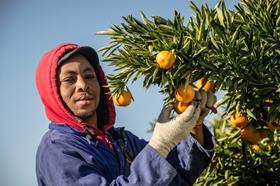
South Africa has now been selling its citrus in the UK since the first decade of the previous century. Today, sales of South African citrus in the UK still account for 10 per cent of the country’s total exports, and in terms of international sales, the UK remains South Africa’s single-largest receiving country.
That is why the South African Citrus Growers’ Association (CGA) has warmly welcomed the new trade deal between Southern African countries and the UK government, announced last week.
“The announcement by the UK government of a continuity agreement post Brexit is appreciated given present uncertainties,” the group stated. “The CGA would like to thank the UK, and the South African and eSwatini (Swaziland) and governments for concluding this agreement.”
The CGA informed its growers of a UK government announcement on Tuesday that it had initialled an Economic Partnership Agreement with the Southern African Customs Union and Mozambique (SACU+M), that would allow business to keep trading freely after Brexit.
It marked the end of formal trade discussions and the UK-SACU+M Economic Partnership Agreement will be subject to final checks before it is formally signed.
The UK government said the agreement would allow businesses to continue to trade on preferential terms with South Africa, Botswana, Lesotho, Namibia, Eswatini (Swaziland) and Mozambique. “It also supports the economic development of these Commonwealth partners laying the foundations for new trade and investment in the future.”
This will help to strengthen further the trading relationship between the UK and SACU+M nations, trade worth £9.7bn last year.
“The SACU+M nations are an important market for UK exports of machinery and mechanical appliances worth £409m in 2018, motor vehicles worth £335m, and beverages including whisky worth £136m.
“Consumers and businesses in the UK will continue to benefit from more choice and lower prices on goods imported from SACU+M countries. Major imports to the UK from these countries last year included edible fruit and nuts (£547m) and motor vehicles (£409m).'
The UK said trade continuity agreements signed wuld cover countries accounting for £89bn of the UK’s trade. When the SACU+M agreement is signed and takes effect, this will go up to £99bn.
The only Southern African country not included in the statement is Zimbabwe, which this week prepared for the funeral of its recently depart leader, Robert Mugabe, who died in Singapore last week.
Mugabe ruled the country for 37 years before being deposed two years ago, leaving the country’s agricultural export industry in a state of collapse and decline and the economy in ruins. This resulted in punitive sanctions – some still enforced today.
The future will determine if Zimbabwe again takes its place amongst the Southern African nations.



